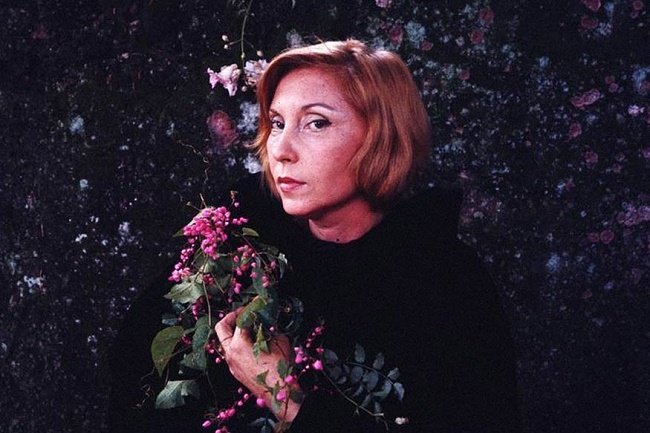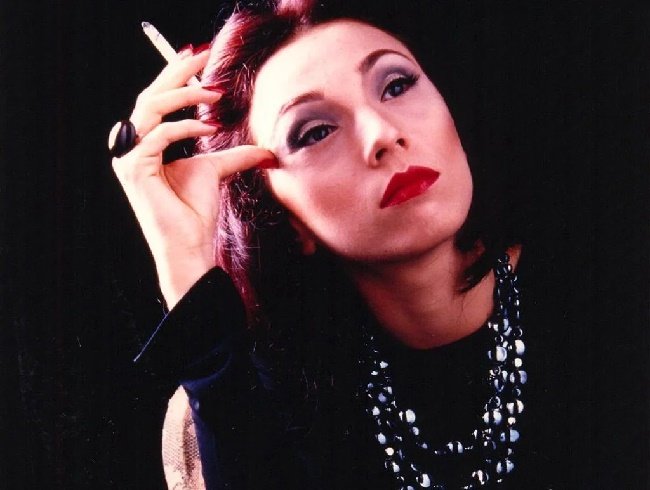Clarice Lispector, la más relevante escritora brasileña del siglo XX (Esp | Eng)
No cabe duda de que la literatura brasileña es una de las más importantes de Latinoamérica. Destacados escritores la han conformado a lo largo de los años, tanto en la poesía, la novela, el cuento, el teatro y el ensayo. Uno de los nombres de mayor trascendencia en ella y en la latinoamericana es el de Clarice Lispector, quien fuera novelista, cuentista y escritora de literatura infantil, quehaceres que acompañó con su intensa labor como periodista, además de traductora.

Aunque no es mi intención hacer una publicación biográfica, me veo en la necesidad de dar alguna información puntual sobre su vida (En la referencia arriba indicada y en otra que indico al final de este trabajo encontrarán buen resumen de su vida).
Su nombre original era Chaya, y nació en Ucrania el 10 de diciembre de 1920. De ascendencia judía, sus padres tuvieron que salir de su patria y emigrar a Brasil, cuando Clarice —nombre que adoptará en ese país— tenía cerca de dos años. Tuvo una vida ruda durante su infancia, a raíz de la muerte de su madre, y por las difíciles condiciones económicas que atravesaban en su familia. De muy joven comenzó a escribir y a publicar. Vivió alrededor de 16 años fuera de Brasil, acompañando a su esposo en sus estancias diplomáticas en Italia, Suiza y Estados Unidos, de quien se separó en 1959. Luego volverá a Brasil, donde hace el resto de su vida hasta fallecerel 9 de diciembre de 1977, a la edad de 56 años, por una grave enfermedad.
Su primera novela, Cerca del corazón salvaje, premiada, la publicó a los 22 años, y luego continuaría su escritura novelística con, entre otras: La manzana en la oscuridad (1961), La pasión según G.H. (1964, la más compleja de sus novelas, publicada en 1969 por la editorial venezolana Monte Ávila), Agua viva (1973) y La hora de la estrella (1977, publicada unos meses antes de su muerte).
Fue autora de varias colecciones de cuentos, entre los que podemos nombrar: Algunos cuentos (1952), Lazos de familia (1960), Felicidad clandestina (1971), Dónde estuviste de noche (1974).

Por ser sus cuentos un poco largos para publicar aquí (dejaré en Referencias un enlace para acceder a una selección de ellos), he decidido reproducir unas notas suyas sobre la concepción de la escritura, que comentaré brevemente.
Notas sobre el arte de escribir
Escribir es una maldición que salva. Es una maldición porque obliga y arrastra, como un vicio penoso del cual es imposible librarse. Y es una salvación porque salva el día que se vive y que nunca se entiende a menos que se escriba.
¿El proceso de escribir es difícil? Es como llamar difícil al modo extremadamente prolijo y natural con que es hecha una flor.
No puedo escribir mientras estoy ansiosa, porque hago todo lo posible para que las horas pasen. Escribir es prolongar el tiempo, dividirlo en partículas de segundos, dando a cada una de ellas una vida insustituible.
Escribir es usar la palabra como carnada, para pescar lo que no es palabra. Cuando esa no-palabra, la entrelínea, muerde la carnada, algo se escribió. Una vez que se pescó la entrelínea, con alivio se puede echar afuera la palabra.
Esta escritora enigmática, densa, profunda, que hizo una narrativa por la que quería pensarse y salvarse, como ella misma dijo, tenía una aguda y clara conciencia sobre el arte que asumió decididamente desde muy joven, y que nunca abandonó. Esa conciencia, problematizada y crítica, la podemos observar en estas notas.
Vivió su escritura en parte como un estigma, pero también como una bendición. Gracias a ella sigue viviendo, aunque vaya muriendo de a poco. Sabe que es un oficio comprometedor y comprometido —consigo misma, en primer lugar—, que supone una labor meticulosa, que puede dar lugar a algo sorprendente. Y que supone un "tempo" capaz de dilatar el placer, que es goce y padecer a la vez. Y está consciente de que busca algo que está más allá de la palabra, si bien sólo a través y en esta puede hallar, en ese interregno entre el decir y el no-decir, entre lo dicho y lo entre-dicho; ese misterio o vacío, que puede hablarnos a los lectores por medio de su palabra que actúa en nosotros desde la perplejidad y la incertidumbre.
Referencias | References:
https://es.wikipedia.org/wiki/Clarice_Lispector
https://en.wikipedia.org/wiki/Clarice_Lispector
https://ciudadseva.com/texto/notas-sobre-el-arte-de-escribir/
https://ciudadseva.com/autor/clarice-lispector/cuentos/
https://en.wikipedia.org/wiki/Why_This_World
https://www.lanacion.com.ar/lifestyle/clarice-lispector-la-escritora-que-cambio-para-siempre-la-literatura-brasilena-nid2080150/
![Click here to read in english]
Clarice Lispector, the most important Brazilian writer of the 20th century
There is no doubt that Brazilian literature is one of the most important in Latin America. Outstanding writers have shaped it over the years, in poetry, novels, short stories, theater and essays. One of the most important names in it and in Latin America is Clarice Lispector, who was a novelist, short story writer and writer of children's literature, tasks that she accompanied with her intense work as a journalist, as well as a translator.
Although it is not my intention to make a biographical publication, I feel the need to give some specific information about her life (In the reference indicated above and in another that I indicate at the end of this work you will find a good summary of her life). Her original name was Chaya, and she was born in Ukraine on December 10, 1920. Of Jewish descent, her parents had to leave their homeland and emigrate to Brazil when Clarice —the name she would adopt in that country— was about two years old. She had a rough life during her childhood, following the death of her mother, and due to the difficult economic conditions her family was going through. At a very young age she began to write and publish. She lived for about 16 years outside Brazil, accompanying her husband on his diplomatic stays in Italy, Switzerland and the United States, from whom she separated in 1959. She would later return to Brazil, where she died on December 9, 1977, at the age of 56, due to a serious illness. Her first novel, Close to the Wild Heart, was published when she was 22 years old and she continued her novel writing with, among others: The Apple in the Dark (1961), The Passion According to G.H. (1964, the most complex of her novels, published in 1969 by the Venezuelan publisher Monte Ávila), Living Water (1973) and The Hour of the Star (1977, published a few months before her death).
She was the author of several collections of short stories, among which we can name: Some Stories (1952), Family Ties(1960), Clandestine Happiness (1971), Where Were You at Night (1974). Since his stories are a bit long to publish here (I will leave a link in References to access a selection of them), I have decided to reproduce some of his notes on the conception of writing, which I will comment on briefly.
Notes on the art of writing
Writing is a curse that saves. It is a curse because it compels and drags, like a painful vice from which it is impossible to get rid of. And it is a salvation because it saves the day that is lived and that is never understood unless it is written.
Is the process of writing difficult? It's like calling the extremely neat and natural way a flower is made difficult.
I can't write while I'm anxious, because I do everything I can to make the hours go by. To write is to prolong time, to divide it into particles of seconds, giving each of them an irreplaceable life.
To write is to use the word as bait, to fish for what is not a word. When that non-word, the interline, takes the bait, something is written. Once the between-line is caught, with relief the word can be cast out.
This enigmatic, dense, profound writer, who wrote a narrative through which she wanted to think and save herself, as she herself said, had an acute and clear conscience about art that she decidedly assumed from a very young age, and which she never abandoned. That consciousness, problematized and critical, can be seen in these notes.
She lived her writing partly as a stigma, but also as a blessing. Thanks to her, she continues to live, even if she is dying little by little. She knows that it is a compromising and committed profession -with myself, in the first place-, that it implies a meticulous work, which can give rise to something surprising. And that it supposes a “tempo” capable of dilating pleasure, which is enjoyment and suffering at the same time. And he is aware that he is looking for something that is beyond the word, although only through and in the word can he find, in that interregnum between saying and not-saying, between what is said and what is between-said; that mystery, that emptiness, that can speak to us readers through his word that acts in us from perplexity and uncertainty.






From Venezuela, our witness drives decentralization and the adoption of Web3 technology, creating opportunities for the local community and contributing to the global ecosystem. // Desde Venezuela, nuestro testigo impulsa la descentralización y la adopción de la tecnología Web3, generando oportunidades para la comunidad local y contribuyendo al ecosistema global.
Sigue, contacta y se parte del testigo en: // Follow, contact and be part of the witness in:
Esta publicación ha recibido el voto de Literatos, la comunidad de literatura en español en Hive y ha sido compartido en el blog de nuestra cuenta.
¿Quieres contribuir a engrandecer este proyecto? ¡Haz clic aquí y entérate cómo!
Gracias por hacer este post @josemalavem ! De esa manera todos aprendemos un poco más de los escritores latinos. A veces es bueno saber la vida de los escritores. Eso influye en el arte de escribir. Feliz día!!!
Gracias por tu visita y comentario, @katleya. En realidad, hablo poco de su vida, pues de eso se encargan los biógrafos. Me interesa difundir más el pensamiento y la obra de los escritores. Saludos.